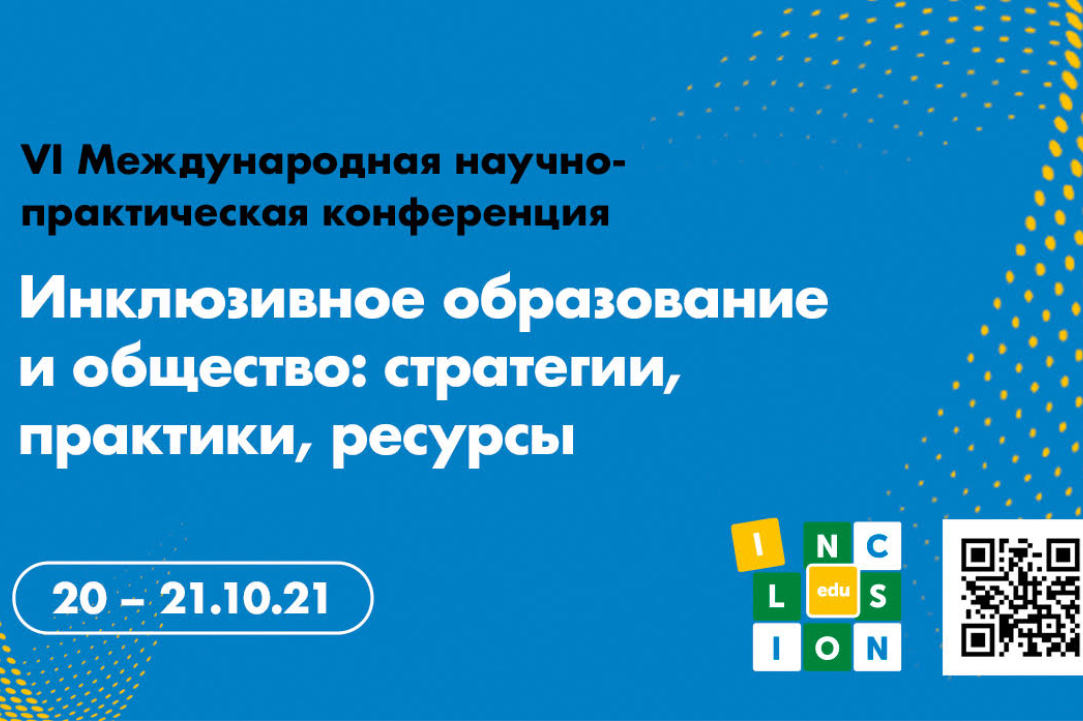Civic Participation and Cross-sector Partnerships as Drivers of Inclusion
On October 20, a panel discussion "Civic participation and cross-sector partnerships as drivers of inclusion" was held within the VI International scientific and practical conference "Inclusive Education and Society: Strategies, Practices and Resources."

In his welcoming address to the participants, the section moderator Christian Fröhlich raised a very important problem: how is the democratization of inclusive practices developing, their application at the local level, the expansion of their diversity, their inclusion in various spheres of Russian society? And what are the challenges inclusion is facing now?Anna Bitova (Moscow, Center for Curative Pedagogics) took the floor in the outline of the issues raised by Dr. Frohlich, and provided the more global theme of the role of non-state, civic initiatives aimed, first, at including persons with disabilities in society. She noted that the problem of inclusiveness does not know age limits, everyone needs inclusion: both the elderly and young children. She briefly presented the results of her research project, in which she and her colleagues examined the perception of themselves and their rights in persons with mental disabilities. She noted that there are a number of difficulties in recognizing such people, understanding their problems. Anna briefly presented the results of her research project, in which she and her colleagues examined the perception of themselves and their rights in persons with mental disabilities. She noted that there are a number of difficulties in recognizing such people, understanding their problems. The speaker emphasized that there is a solution to the problems, and their implementation is the task of both civil society and other participants.
Continuing to reveal the topic of including persons with disabilities in public spheres, Marianna Orlinkova (Moscow, Center for Curative Pedagogics) spoke about her own practices, which she implements in Moscow. The gastronomic model platform of the Life Path Center, where people from 18 to 50 years old are engaged, helps all people with disabilities find a profession in the culinary field. Since the founding of the center and the model site, several people entered the labor market and got a job in restaurants, two more are ready to complete the training program and go beyond the "model", already into real life, into the market to also become employees. There are two large platforms in the model where experienced chefs show, tell and teach people with disabilities. For novice chefs, quiet places have been prepared where you can relax, as well as rooms in which you can sit and tune in to a new job.In conclusion, Svetlana Borodina (New York, Columbia University) spoke about the models and approaches to social integration to inclusive citizenship for people with disabilities in Russian society. The main problem, the speaker emphasized, is the invisibility of such people and the problems that exist around them. Svetlana Borodina emphasized that it is necessary to apply various practices, both already created and tested in other countries, and innovative ones found in the process of research and inclusion practices.After the speeches of the speakers, a lively discussion unfolded, during which questions were received both from listeners who were present in person and from listeners from digital platforms.


